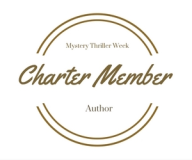Epigenetics, Spontaneous Evolution, and the Power of Positive Thinking
I just finished reading Spontaneous Evolution, Our Positive Future and a Way to Get There From Here by Bruce H. Lipton and Steve Bhaerman (2010) and was looking back over the dog-eared pages, trying to get a handle on what I can tell you about a book so mind-blowing that I couldn’t wait to share it, but I came up blank. There’s so much information packed into Spontaneous Evolution that not only do I have no idea where to begin, I don’t know what to highlight.
So how about this for a start? What the heck is epigentics?
Here’s the definition from the online dictionary:
ep·i·ge·net·ics | ˌepəjəˈnediks |
plural noun [treated as singular] Biology
the study of changes in organisms caused by modification of gene expression rather than alteration of the genetic code itself: epigenetics has transformed the way we think about genomes.
I hear you — English, please! In general, that means your DNA only predisposes you to an outcome, yet ultimately, you control that outcome. DNA aside, there are a whole list of factors that go into getting you from birth to outcome, but here’s the great news: you have a choice about those factors and can influence or change an outcome simply by altering the way you think about it. As Bruce Lipton says: “if you think it’s all in your genes, think again.”
According to Lipton, your DNA is only the table setting for your reality, but the appetizers, the main course, the dessert, even the wine pairings are all you and your perception of that reality. Lipton is not just suggesting this, but has spent a good portion of his adult life researching that very phenomenon. For thousands of years, gnostics, buddhas, mystics and Wayne Dyer, among others, have said the same thing only without the lab research. They always knew that science would catch up — and now it has. 
Fire-walkers, levitators, energy healers, mothers who lift cars off their trapped children, faith healers, these inexplicable and amazing people defy natural laws and are usually explained away as anomalies, a result of faith. According to Lipton and Bhaerman, the hardest part about the belief game is that you either believe it or not; there is no middle ground. And, be honest, our society is all about hedging our bets so faith, real honest to goodness, unshakeable let the snake bite me because God will keep me from dying faith, is an unusual commodity.
If you’re focused on what the doctor said about your dis-ease and your prognosis for health, you’ve already given away part of your power, and the random miracle that may have slipped in the back door, assisting you in your reversion to perfect health may not have the available floor space with all the other worries claiming their spots.
My favorite discussion in Spontaneous Evolution was the bit on Darwin’s theory of evolution. Did you know that Darwin wasn’t really the first to come up with the theory? He had help from English naturalist Alfred Russel Wallace. Wallace, unlike Darwin, was a commoner who caught and sold specimens to museums and wealthy collectors as a way to make a living. In June 1858, Wallace sent Darwin a copy of his On the Tendency of Varieties to Depart Indefinitely from the Original Type, Wallace’s own theory of evolution. Apparently, catching specimens in Borneo and selling them had given him a lot of time to study those specimens. At this point, Darwin hadn’t thoroughly vetted his own theory so rather than rejoice at a like-minded idea, he mourned the possibility of losing his coveted spot as the father of a new theory and enlisted the help of some well-connected colleagues. A month later the theory was officially introduced at the Linnean Society of London as the Darwin-Wallace theory.
Here’s the kicker. Darwin’s theory espoused one of fierce competition as in — the only way one succeeded in the world was to be the very best. As a result, for over 150 years, people have been trampling over each other to get to the top of the heap because, well, survival of the fittest means that the best man wins. On the contrary, Wallace’s theory was not one of survival, but of cooperation.
“From the perspective of the commoner, Wallace recognized that evolution was driven by the elimination of the weakest, while Darwin interpreted the same data to mean that evolution resulted from the will to survive inherent in the fittest. The difference? In a Wallacean world, we would improve in order not to be the weakest, but in a Darwinian world, we struggle to acquire the status of being the best. In other words, had Wallace prevailed, there would be less focus on competition and more on cooperation.”
We want to be number one or we think we’ve failed. We have less of a cooperate spirit and more of a need to dominate than ever. We’re breeding this into our children the same way we’ve had it bred into ourselves. We want to get ahead, be best, and take no prisoners in the process, but is that really how society functions best, or for that matter, how we want to live our lives? Remember what it felt like to be part of a community? People helping people? Why don’t we do that anymore? Should the desire to help really be equated with weakness?
Eventually, Wallace’s name dropped off — he was a commoner, after all, and in a classic case of survival of the fittest (or should it be richest?), only Darwin remained. In only took about a year for Wallace to fade into obscurity while Darwin was heralded worldwide with the publication of The Origin of Species by Means of Natural Selection. There is more to the story and about a decade later, Darwin himself started focusing on human cooperation over competition, but by then it was too late and Darwin’s followers dismissed his new theories — a real pity.
What does the Iroquois Confederacy and the birth of the United States government have in common? How about the birth of a cell and its adaptation to an evolving world? Sure, the world can get you down when the news is always so negative, but Lipton and Bhaerman have an antidote. Spontaneous Evolution will show you how to move the earth beneath your feet. This book is filled with so much positivity that you’ll walk, or maybe even float away convinced that a more peaceful, verdant world is at all of our fingertips.
And you thought change was impossible.
pam lazos 1.12.20













Sounds like you’ve discovered a lovely read, Pam! We need to spread the word about books like this to create all the positive vibes we can.
LikeLiked by 2 people
I think it’s going to be a go-to book for me in times of stress, 😳Jean. There’s so much good stuff in it. My review really did t so it justice.
LikeLiked by 1 person
Reminds me of RosalindFranklin, who actually was the discoverer of DNA who told James Watson & Crick about it and they nicked her idea … she should have got the Nobel Prize …
Darwin’s theory leaves much to be desired.
Sorry I’m so late to your post Pam – things have been somewhat otherwise ..
Incidentally Elizabeth Gilbert (of Eat Pray Love fame) wrote a sterling book ‘The Signature of All Things’ and Darwin if I remember correctly plays a role in this book.
Peace!
LikeLiked by 1 person
That’s funny, Susan, because I’ve often thought of writing a screenplay about Rosalind Franklin. And I loved The Signature of All Things!
LikeLiked by 1 person
Wow!
LikeLiked by 2 people
Great minds!🥰
LikeLiked by 1 person
Sounds like an interesting book. I’ve always thought nature-and-nurture should be a blend, not as binary decision. Darwin’s Survival of the Fittest–to me, that means fittest for the environment. If we no longer can survive the geography where we live, we die out. To me, that doesn’t preclude cooperation or require competition. Maybe, again, a mix of both.
Interesting review, as always!
LikeLiked by 2 people
Totally agree, Jacqui. Gotta sweep the porch once in awhile and make sure the appliances are in good working order, right?!🤪
LikeLike
Insanely fascinating. Thank you for sharing Pam!
LikeLiked by 1 person
My pleasure, Damyanti. 😍
LikeLike
Wow, I’m going to read this one! Thank you Pam xx
LikeLiked by 1 person
Have fun, Michele!
LikeLike
Excellent post, Pam! We would never have survived as a species if we hadn’t learned to cooperate. with each other. The narrative that serves best those who hold the power wins out. If we want real change, we have to change the narrative.
LikeLiked by 2 people
Ah, so true, Rosaliene, and as a writers, who’s in a better position than we are, eh? ❤️
LikeLiked by 1 person
Completely fascinating. I didn’t know about Wallace, but like his take on things much better than Darwin’s. I agree about people too easily giving their power away to doctors. A bit of further research is often in order when confronted with a medical diagnosis.
LikeLiked by 1 person
Here’s to cooperation! Cheers, Ally. 🥂
LikeLiked by 1 person
Not so much a case of science catching up, more like it going around in a circle and rediscovering some of what it had known before.
LikeLiked by 2 people
Haha, true, Mick! Before the dark disinformation days…😱
LikeLiked by 1 person
I think we could still be in those.
LikeLiked by 1 person
Sadly, I think you’re right. 🙄
LikeLiked by 1 person
Fascinating story of Wallace and Darwin. Well done.
LikeLiked by 1 person
Thank you!
LikeLiked by 1 person
What’s needed are mass movements of progressive-minded people. The younger people will need to lead the way.
LikeLiked by 2 people
Oh yeah! 🤓💃
LikeLiked by 1 person
Fascinating, Pam. I had read some of Wallace’s writings awhile back and thought they were more interesting than Darwin’s. I’ve not had the chance to read in that area for some time, but I do know that some of the writings of biologist E.O. Wilson include the idea that cooperative behavior of humans contributes to success. (He’s from my state, so there’s often talk of what he’s doing.)
LikeLiked by 2 people
Wow, Leah, that’s awesome that you’ve read the source material. I’m impressed!🤓
LikeLiked by 1 person
Hello Pam 🙂 Happy New Year to you. I’m back and happy to see this post. I’m glad you mentioned Wallace and cooperation – that bit is often missed out when he is given credit for pre-recognising Darwin’s theory. I haven’t read this latest Bruce Lipton book, it sounds a more in-depth of his earlier works? Do you know the work of Joe Dispenza? He is my hero and I’ve been working with his discoveries for about 15 years now and credit him with all the progress I have made in moving past the old mindsets and beliefs. For a quick introduction to him and his work have a look at this https://youtu.be/wpqVezKradg You can find heaps about him and from his workshops etc on YouTube if you are interested.
LikeLiked by 2 people
Hi Pauline!! I was thinking about you the other day and wondering why I hadn’t seen any posts in a while. I do hope all is well.
This is not a new book — it’s a 2010 publication — but I’m such a bibliophile that I often buy books knowing I won’t have time until much later to get to them and that’s what happened here. And yes, it’s classic Bruce Lipton, but there’s all this stuff on American history because of the co-author which was fascinating to me. I have not heard about Joe Dispenza but I will definitely check him out. I have been feeling kind of stuck lately — not in my head, but in my physical body and I would welcome anything to help me move some of this ancestral crap out of my airspace so thanks for the tip. Exactly what I needed and when I needed it! Glad you are back! xoxo
LikeLiked by 2 people
I’m glad to be back, though still a tardy blogger 🙂 The past six months has been a rocky ride, but we have weathered it and hope it came to a nicely rounded ending as 2019 closed down. I may even make a post sometime soon – but don’t hold your breath….. I think Joe is a genius and recommend him to anyone who feels ready to really take hold of their thinking habits and inbuilt beliefs. He really changes lives.
LikeLiked by 2 people
That’s me! Ima so totally ready!!
And whatever had you down, Pauline, I’m glad it didn’t win!❤️❤️❤️
LikeLike
Do report back, I’d love to know what you think.
LikeLiked by 1 person
I will, Pauline. ❤️
LikeLiked by 1 person
Pauline, I’m happy to hear that you’ve weathered the storm. You and your dear friend have been in my thoughts and prayers ❤
LikeLiked by 2 people
Thank you Rosaliene ❤ My friend is bouncing back so well, we are beyond happy and hopeful of full remission. There have been others lost in the interim and it has been a time of letting go …….. of finding new ways of being. We all have these times I think. Thank you for this little note xo
LikeLiked by 2 people
❤️
LikeLike